Understanding Our Collapsing World
Donald Trump, climate change and all the other chaos. How we got here, where we are, and what’s actually possible from here.
Abrupt climate change. The sixth mass extinction. Collapsing forests. Dead soil. Dry rivers. Acidic oceans. Coral reefs bleaching. Insects vanishing. Plastic in the air. Microfibers in your lungs. Nanoplastics in your blood. In your brain. In birds. In fish. In babies.
Fossil fuels and ores depleting. Every barrel, every watt, more expensive. Drilling and scraping garbage rock. Less and less, needed by more and more.
Prices rising. Inequality exploding. Systems unraveling. Institutions failing. Minds breaking. Leaders lying. Attention spans frying. People dividing. Culture fracturing. Authoritarianism rising. Truth dying. Bombs flying.
“How the f*** did we get here?”
It’s not a coincidence that we’re facing all of these issues at the exact same time. It’s not bad luck and it’s not random. Because it’s all connected. These are symptoms.
In case you don’t know: we’ve exceeded the limits of what this planet can support and are crossing several planetary boundaries. We’ve depleted non-renewable resources like oil, gas, coal, minerals, and phosphorus, things that don’t come back. We’ve used up renewable resources like forests, fish stocks, freshwater, and topsoil, faster than they can regenerate.
At the same time we’ve drowned the biosphere in waste, with CO₂ and methane in the atmosphere, plastic and toxic chemicals in the oceans, nitrogen runoff in rivers, heavy metals in the soil, and mountains of toxic garbage piling up around the world.
Our fantasy of endless growth has slammed into biophysical reality, triggering environmental, political, social, and economical disasters.
And that’s why everything is collapsing at the same time.
This pattern was modeled decades ago in 1972 by the Club of Rome in their Limits to Growth study. They looked at what would happen if growth kept going on a finite planet, and their Business-as-Usual trajectory showed us tipping into decline right about...now.
It wasn’t really a prediction, but a warning about the risks of continued growth on a finite planet. But looking around today, it seems like they nailed it. The collapse is here and the evidence is conclusive.
How are we responding?
Mostly by normalizing the insanity and not really doing anything about it. There was a good piece in the Guardian from Adrienne Matei about a concept called Hypernormalization.
“What you are feeling is the disconnect between seeing that systems are failing, that things aren’t working … and yet the institutions and the people in power just are, like, ignoring it and pretending everything is going to go on the way that it has,”
The dysfunction is obvious now, especially in the US.
The Hypernormalization documentary from Adam Curtis, released in 2016 on BBC, shows how governments and media have kept people passive by simplifying reality and denying the bigger patterns. It’s more relevant than ever and I recommend you watch it.
Now, about the response. Most people can feel the collapse because it’s right in front of them. It’s no longer abstract because they’re living it. It’s on the TV and all over social media. They see Trump, the chaos in the US, and a rapidly crumbling world order. They see prices going up, struggling economies, and their standard of living declining. They see the war in Ukraine, the genocide in Gaza, and increasingly destructive natural disasters. So they focus on the visible symptoms and try to fix them. Get rid of Trump and get “back to normal”. Fix the economy. End the wars. Solve climate change.
Some argue, vote, protest, and blame. Many have checked out entirely, lost in echo chambers, conspiracy groups, or cult-like communities (MAGA). And nearly everyone still worships the economy above all else. Seriously, it’s always about “saving the economy”. No exceptions. No matter what it costs.
Republicans want tax cuts to save the economy from Trump's tariffs.
The EU wants new power lines to save the economy. First it needs cash and local support.
China's latest stimulus package: is it enough to save the economy?
Yawn.
I keep seeing articles like this “The precipitous decline of birthrates throughout the world poses a serious threat to humanity. What is to be done?”
More consumers, more growth…is this guy smoking crack? I guess he’s worried he may not get a pension. Yeah, he probably won’t, but a lack of consumers is not the reason. It’s because the biosphere is collapsing, and that’s happening because of unchecked growth and consumption, so maybe we don’t need more of that?
And this “Progressives should care that the global population is set to fall”
Give. me. a. fucking. break. Carbon tunnel vision. Ecology blind. Energy blind. Materials blind.
Richer societies consume an insane amount of resources, generate massive amounts of waste, have outsourced emissions and have not been heading in the right direction, ever. And as long as we rely on global supply chains, measuring emissions by country is pure greenwashing.
Let’s zoom out so we can understand how we got here.
Stage I: Instinct, Energy & Technology
As with all species on this planet, hominids (including Homo Sapiens) evolved to do two things: survive and reproduce. That’s the biological mission, and to do that you need energy. Every species is wired to seek energy to stay alive and pass on its genes. If a species doesn’t find enough energy and reproduce, it goes extinct. So yes, these are hard-coded instincts.
Unfortunately, there’s nothing in that programming that says “stop now” or “save some for later”. There was no need for that. And that’s a big problem for us. Look no further than how fat many Homo Sapiens are today, and all the other addictions we struggle with. We’re wired to chase dopamine, and most of us don’t stand a chance.
For most of our history, nature kept our growth in check. Predators, disease, competition, and starvation. If a population grew too much, something would knock it back down. Usually famine, because there wouldn’t be enough food to support the population that had grown too much.
But we got clever. Our ability to think in abstract terms let us invent tools and technology that pushed us past natural limits. We call this “progress”, but these are what Ronald Wright called progress traps in his book A Short History of Progress i.e. solutions that solved problems at the time but backfired later, by creating even larger problems.
The first major technologies were fire, stone tools, weapons, language, and teamwork. Fire let us cook, which meant more calories with less chewing and digestion. That gave us more energy for our growing brains. Fire also kept us warm, scared off predators, cleared forests, and helped shape better weapons. Tools gave us sharp edges, spears gave us range, language let us coordinate hunts, share knowledge, and strategize, making us apex predators.
With these technologies we could kill animals from a safe distance. And just like that, we jumped to the top of the food chain.
This may not sound like much to us today, but it changed everything. We now had the power to destroy entire ecosystems, and some of us did. To see why this matters, we need to understand how evolution works.
Evolution is very slow. Getting faster legs, better camouflage, better vision, or longer arms usually takes hundreds or even thousands of generations. The way it happens is through random genetic mutations. Most mutations do nothing. But sometimes a mutation helps survival, and if it does, it will spread over many generations through natural selection.
Usually it’s a response to the environment. Maybe prey gets faster, a new predator shows up, or the climate shifts. Suddenly speed matters more or camouflage becomes life or death. The animals that happen to have an edge (mutation) will survive and reproduce. The ones that don’t, die. Simple as that.
But we found a shortcut. The real breakthrough was abstraction i.e. our ability to deal with ideas, not just events. We could imagine things that didn’t exist yet, such as a hunt before it happened, a tool before it was built, a god in the sky, or a future we wanted.
Combine this with technology, and we didn’t have to wait for evolution, we could just make a new tool. For example:
We couldn’t skin animals with our teeth or nails, but with a sharp rock we could.
We couldn’t kill large animals with our hands, but with weapons, traps and teamwork we could kill anything.
We couldn’t survive harsh winters with our naked skin, but with fire and clothing we could.
Basically, we broke out of the biological upgrade cycle. Our bodies no longer had to adapt through evolution, we could simply use technology and take evolution into our own hands. This was the beginning of our overshoot.
As we expanded into new territories, we encountered megafauna who had never seen a hairless monkey carrying a flaming weapon. We were small, so they didn’t see us as a threat because they hadn’t evolved to. Their mistake. We killed them and transformed (destroyed) entire ecosystems.
This is how it started. We’re wired to survive and reproduce as much as possible. We didn’t choose this path, we just followed what worked. The more energy you grabbed, the better you did.
Stage II: Agriculture & Civilization
Then about 12,000 years ago the climate stabilized and everything changed again. With a stable climate, we no longer had to follow slow-moving climate shifts. This meant that we could settle permanently, develop agriculture and domesticate animals, and store surplus energy. That surplus energy gave us more babies, hierarchies, bearded men with spears yelling about territory, and eventually cities.
Welcome to civilization. Now you need money to survive.
What’s money? We made it up. But you need it to pay taxes and buy back access to the planet you were born on.
What are taxes? That’s the cover charge to live on land we already stole, plus a subscription fee for roads, armies and wars
Can I opt out? No. Your choices are: become a warrior, a servant, or a corpse.
Welcome aboard. No refunds!
Agriculture and civilization completely changed us. Before that, our values and beliefs were rooted in nature because we lived as part of it. We were animistic. Some believed everything had a spirit: trees, rivers, animals. And yes, we killed animals, but we respected them. We saw ourselves as part of nature, not separate from it.
There was no concept of time or history, and we didn’t know much of anything about the world. We didn’t know how large it is. We couldn’t explain things. Rain? I don’t know. The sun? I don’t know. An earthquake? Who the hell knows. There was no science. No books. No Google. Nothing. So we made up all kinds of silly stories, but they were mostly harmless.
But agriculture and civilization reshaped our relationship with nature and our beliefs. We stopped living in nature, and began exploiting it. Our stories stopped being silly and became insane and violent. Justifying everything from slavery to ecocide.
Think about what it takes to get an ox to plow. You have to break its instincts, force it into submission, and make it obedient enough to pull a plow day after day while you whip it. You can’t treat an animal that way and still respect it.
As we learned to control and reshape the environment, many societies started seeing nature as something to conquer and exploit. This was the birth of human supremacy.
Early civilizations expanded their farms, cities, and armies. The ones that grew faster and stronger outcompeted others. So endless growth became a necessary survival strategy, and then it became a cultural value. If you didn’t grow and build weapons, you risked getting slaughtered by others that did.
For thousands of years, large and small civilizations went through cycles of self-destruction mostly for the same reasons. They consumed surrounding resources, chopping down forests, depleting water sources and stripping topsoil. Then they grew, expanded and consumed more, and eventually collapsed because they ran out of the resources they needed to maintain their societies. Rinse and repeat.
Stage III: Modern Industrial Civilization
Then came science, fossil fuels, industrialization, and capitalism. That’s when things really took off. We hit the energy jackpot. Our basic instinct to grow got supercharged by fossil fuels and an economic system that runs on infinite growth. Yes, infinite. On a finite planet. Who the fuck signed off on this?
So we threw a big party wasting it on combustion engines, plastic crap, and shopping malls. Polluting ourselves to death.
Why? Because like all living things, civilization is a dissipative structure, a thermodynamic system that sustains itself by consuming as much energy as possible and releasing waste (heat and pollution). And fossil fuels have so much energy that they were simply irresistible. At least to some people, and that was enough. With fossil fuels we had the power to destroy the entire planet. And….we did!
We grew from 1 billion people in 1800 to over 8 billion today, and at the same time, our average energy consumption increased more than twentyfold. From about 2,000-2,500 calories per day (just enough to stay alive) to over 50,000 calories per day when you include the fossil fuels, electricity, and industrial processes that we rely on (that’s the global average). That means our total thermodynamic footprint is now equivalent to more than 160 billion Homo Sapiens roaming the Earth.

The only reason we grew this much is because of the abundant and cheap energy provided by fossil fuels. All we had to do was extract them, and then they did the heavy lifting. We have machines working for us 24/7. Trucks, tractors, factories, and power plants, mostly running off coal, oil, and gas. This allowed us to specialize into all kinds of useless bullshit jobs.
What could possibly go wrong?
Everything went wrong. We’re in deep overshoot. We’re consuming forests, topsoil, water, and fossil fuels as if they’re infinite. And destroying life-support systems we depend on for air, water, food, climate, biodiversity.
What we’re living through right now is a one-time boom. A cosmic sugar rush powered by fossil sunlight, fantasy economics and delusion. It’s not going to last. It’s physically impossible. The entire system is crashing. Because that’s what happens when a species exceeds the limits of its environment. A die off.
And that’s overshoot in a nutshell.
Drivers of Overshoot
I used to think the problem was overpopulation and overconsumption. Too many people, consuming too much, and polluting too much. Which is absolutely true, that is the problem. But it’s obviously just an outcome. Because even if we suddenly cut our population to three billion, not much would change unless we also changed how we think, how we live, and what we value.
So the real question is: Why did we grow and consume beyond limits?
Well the short answer is because we could. But there are multiple driving forces behind it, and any solution has to account for all of these forces. Here’s a framework I use:
In short, our biological primal instincts drive us to consume and reproduce, while strategic dynamics, rooted in energy and physics, push individuals and countries to extract faster, expand quicker, and never hold back. And our delusional beliefs of human supremacy, endless growth, and techno-salvation justify it and blind us to reality.
Put all this together, and you get a system designed to keep growing and grabbing, no matter what. That system is modern industrial civilization. It’s the massive machine built on fossil fuels, factories, global supply chains, finance, and nonstop trade. This system has to die or the biosphere dies. Because the two aren’t compatible.
Let’s take a closer look at these driving forces.
4. Systemic Drivers & False Solutions
There’s this massive cognitive dissonance that we can have our cake and eat it too. That we can keep the comforts of modern life and fix the system that’s destroying the planet. But we can’t.
Most people focus on politics, economic reform, or blaming fossil fuel companies, because those are the parts they can see and understand. It feels manageable. They think if we just tweak capitalism, regulate emissions, or vote for greener policies, we’ll be fine. But that’s the contradiction. They want change without sacrifice. They want sustainability without giving up their cars, flights, meat, heating, Amazon deliveries, or global infrastructure. That’s why every attempt to fix the system fails because the system is the lifestyle. And that lifestyle is unsustainable.
There is no version of the future where we keep this way of living and avoid collapse. That world does not exist. You can’t live like this and have a livable planet. One has to go.
These systems are amplifiers of our behavior, not root causes. The truth is that it makes almost no difference what economic system we use, who the leader is, or how we power our civilization, unless we radically change how we live. But people don’t want to change voluntarily.
Capitalism & Economic Systems
Some people have this fantasy that there’s an alternative economic system where we can still keep cars, houses, gadgets, roads, internet, electricity, global shipping, massive infrastructure and everything that goes along with modern life, without it ending in disaster. And if you believe that, you don’t understand the problem.
A lot of people, especially on the left, think capitalism is the problem, but capitalism is not the root cause. It’s just an unfair distribution model that accelerated collapse. But the problem is not distribution, the problem is extraction.
Socialists and communists also extract resources, bulldoze forests, deplete topsoil, poison rivers, and burn fossil fuels. You can name the system whatever you want, but if it extracts from nature to maintain human comfort, it’s not sustainable and ends in ecological disaster.
People hate capitalism mainly because it creates massive inequality. It’s a profit-driven market system that privatizes shared resources, rewards extraction, and concentrates wealth. The mechanism is quite simple: capital compounds, labor does not. The more you own, the more you can control. What this means is that the rich keep getting richer faster.
But redistributing monopoly money across the population wouldn’t solve the core issues. In fact, it could make things worse, because it might increase total consumption. Sorry, but making everyone richer just speeds up extraction and collapse. I’m all for equality though, which means consuming less, together. All of us.
Today, billionaires have a lot of wealth on paper, but most of their wealth doesn’t really represent consumption. They hardly spend a fraction of it. They don’t eat 100,000 meals per day or drink 100,000 cappuccinos every day. Their wealth is more about influence and power, and we need to dismantle that power.
Reforming capitalism, or even replacing it, will not undo ecological overshoot. That ship has sailed. But a fairer system could help soften the landing.
Politics & Democracy
There’s this naive hope that better leaders can turn it all around, as if the problem boils down to who’s in charge. But that’s just another fantasy. Changing the captain of a sinking ship won’t stop it from sinking.
And it’s easy to point fingers at leaders, but it’s also mostly bullshit. Look at what the average voter supports:
Yeah. We’re fucked. Try running for office on a platform of “consume less” or “accept limits”. Nobody wants to hear that and nobody wants to vote for that. They want their pensions, their flights, their cheap goods. A future just like the past. So the system keeps spiraling, trapped between the physics of limits and the politics of denial.
What this means is that democracy is not going to save us, for now. Because democracy is the will of the people, and right now, the will of the people leads to collapse.
Obviously it would be great if someone actually acknowledged that the ship is sinking, like Dave Gardner in the 2024 election, and had some responses that made sense. But most people never heard of him and even fewer are ready to accept his agenda:
I’m running for U.S. President so I can tell the public the truth about why our system is failing us and our continued existence on the planet is so tenuous. It’s an emergency that calls for clear, decisive, leadership and all-hands-on-deck action. This is not a time for compromise and half-steps. We will make no more dead-planet decisions. Only bright-future pathways will be chosen.
On day one I’ll declare a national emergency and mobilize government, business, media and the public in an urgent project to shrink our nation's ecological footprint:
• contract GDP
• decarbonize and go on an energy diet
• work less
• consume less
• support and accelerate the current trend toward choosing smaller families
Now that’s real talk! Maybe next time?
Donald Trump and the rise of far-right politics
We’ve seen this before. Back in the 1920’s and 1930’s, the world was a mess and people were broke, angry, and scared. That’s what helped bring Adolf Hitler to power in Germany, and Benito Mussolini in Italy. When life gets hard and the system stops working, people look for someone to blame and someone who says they’ll fix everything.
Donald Trump is a symptom of a declining American empire in late-stage capitalism, and a global industrial civilization that has blown past planetary limits. Wealth inequality has reached extreme levels, and our system built on endless extraction and growth has hit the ceiling and started to unravel.
As resources get harder to find, prices go up. Life gets harder. People expected things to get better, or at least stay the same. That’s what they were promised. But that didn’t happen. So they get angry and want easy answers. That’s how you get fascism.
Then a strongman comes along promising to fix everything and bring back the good old days of abundance. He gives people someone to blame. Migrants. Elites. Liberals. Scientists. And he promises to make everything great again, not by facing reality, but by denying it.
But the world people want no longer exists because overshoot symptoms have already destroyed the conditions that made it possible.
Now, that doesn’t mean we shouldn’t get rid of Trump. Of course we should. He’s a narcissistic authoritarian who causes real harm. But he’s a symptom and getting rid of him doesn’t change biophysical reality.
The right denies science. The left denies math.
Yes, the right rejects science, thinks climate change is a hoax, and blames the left, immigrants, and environmental regulations for economic decline. They’re not even on the fucking map.
But mainstream liberal politics is also in denial of reality, and hasn’t offered a fundamentally different path or done anything about the existential problems we’re facing. They still pretend the system can work with a few tweaks. They also remain very committed to economic growth. They also deny limits. It’s the same story, over and over. More growth, more abundance, just around the corner.
Still the same suicide mission.
Notice how every “climate solution” has modern civilization and growth as a given. It’s non-negotiable. EV’s, carbon capture, solar panels, hydrogen airplanes, all built on the idea that we’ll keep car-culture, highways, global shipping, smartphones, and cheap flights. The only debate is how we power it. There’s no serious discussion of scaling down economic activity, or changing our economic system, or even embracing a declining population. Just cleaner ways to keep the party going forever.
Green Growth & Fossil Fuel Companies
Some people believe that we can eliminate emissions and keep this system going with green growth and clean tech. That’s not true.
First of all, modern life is built on fossil fuels. It’s not just about gasoline and diesel. It’s asphalt, plastics, cement, steel, glass, foams, carbon fiber, grease, synthetic rubber, synthetic fibers, solvents, fertilizers, pesticides, herbicides, detergents, pharmaceuticals and on and on. Nearly everything depends on oil, coal, or gas.
Secondly, there is no clean version of global industrial civilization. Even if you solved emissions, you would still be destroying ecosystems with mining, pollution, and habitat destruction. And we would still be running out of critical resources like topsoil and freshwater, things we can’t live without.
And no, it wasn’t the fossil fuel companies that did this to us. Sure, Exxon and Shell lied, buried the science, and ran denial campaigns. But they didn’t force anyone to buy a car, book a flight, or fill up a shopping cart.
In every election, people vote to keep this lifestyle going, demand convenience and low prices, which requires fossil fuels. We wanted speed, comfort, and convenience. They delivered. We bought the plastic, the concrete, the tires. We burned the oil. We are the polluters.
Having said that, I’m all for fining oil and gas companies, and phasing out fossil fuels ASAP. I just think it’s hypocritical to blame it all on them, because it lets the rest of us off the hook.
But I know that quitting fossil fuels would collapse this ecocidal civilization, so we won’t do it. Because this is not a problem, it’s a predicament. We can’t live without the thing that’s killing us.
3. Ideological Drivers & Delusional Beliefs
As I already mentioned, civilization shifted our beliefs from seeing ourselves as part of nature to seeing ourselves as above it. That’s where human supremacy and the religion of growth began.
As problems got worse (running out of resources, fighting each other, destroying surrounding environments) people often looked to technology for answers and they found them. That’s not new. The Romans used machines, roads, and aqueducts to grow their empire. All civilizations used tools to survive and expand.
But something changed in modern times. Technology became a religion. We started saying: “If we just invent the right thing, we can fix everything and keep growing forever”. That’s techno-salvation. The idea that technology will magically save us from the mess we made.
Let’s take a closer look at how delusional these beliefs really are.
Techno-salvation: The belief that human ingenuity and technology will always save us.
Why it’s delusional: Techno-salvation is delusional because it treats technology as a magic fix for problems that are rooted in physical limits. Every new technology still runs on finite energy and materials, often shifts the damage elsewhere and has negative externalities.
Despite this, many people still think technology is going to fix everything. That some genius is going to come along with a breakthrough if we just wait long enough. A magic carbon vacuum. A fusion breakthrough. I used to believe that too. It’s a comforting thought, but it’s still delusional.
What most technology actually does is extend our overshoot. It allows us to keep doing something we’re not supposed to be doing. Here’s how it usually goes. We grow. We hit a limit. That creates a crisis. We use technology to “fix” the problem so we can keep going. That technology creates new problems. So we invent more technology and new problems appear. Adding complexity. And round and round it goes.
Let’s consider two examples.
The Automobile
In the early 20th century, cities were overcrowded, streets were filthy, and horses were the main source of transportation. The streets were full of horse shit, diseases spread, and people looked for solutions to this problem.
Along came the automobile. Problem solved. Cities got cleaner and transportation was faster and more convenient. People could live further out so suburbs exploded while roads and highways multiplied.
What did that lead to? Climate change, air pollution, oil dependence, car dependence, traffic deaths, urban sprawl and much more. We solved one problem and created 10 bigger problems.
The Green Revolution
By the mid-20th century our population was growing fast and people were worried we wouldn’t be able to grow enough food to feed ourselves.
Naturally, instead of addressing our exponential population growth, we launched what’s now called the Green Revolution. High-yield crops, mechanical irrigation systems, chemicals, and synthetic fertilizer made through the Haber-Bosch process. Everything dependent on fossil fuels and machines.
It worked. Global famine avoided. Population exploded.
Now we’ve got dead zones, degraded topsoil, depleted groundwater, biodiversity loss, a food system completely dependent on oil and gas, and billions of people dependent on a fragile web of supply chains. Once again, the solution just kicked the can down the road and made the problem bigger.
“Civilization is a hopeless race to discover remedies for the evils it produces”
- Jean-Jacques Rousseau
That’s not to say all technology is bad, especially considering we’re stuck in this dystopian timeline.
Some technology could help us reduce suffering, adapt, and downshift during collapse. Basic, simple tech like solar water heaters, composting toilets, hand tools, bicycles. Stuff that actually fits the scale of what’s possible. I’m also not against building some renewable energy to help us adapt to whatever comes next.
But that’s not what we’re doing. Instead, we’re pouring energy into AI fantasies and high-tech magic tricks to keep the machine running, chasing endless growth, and dodging the hard questions. And the longer we do that, the worse the crash will be.
Techno-salvation is a story we tell ourselves so we don’t have to change. We’ve wasted decades chasing miracle solutions for a system that’s fundamentally unsustainable. Now we’re out of time and out of runway.
Endless growth: The belief that there are no limits to growth.
Why it’s delusional: Growing forever on a finite planet is impossible, so obviously it’s delusional. It’s basic math.
I’m not even sure how many people truly believe infinite growth is possible, but it’s surprising how few ever stop to question it. Maybe that’s because it’s the story we’ve been sold our entire lives. And even though it only takes about 30 seconds of honest thinking to realize it’s complete bullshit, most people never go there. Because questioning growth means questioning everything.
But in case someone doesn’t get it, let’s look at why endless growth is delusional.
Even the tiniest growth rate hits a wall eventually. For example, if we keep growing our population at just 0.1% per year, which is almost nothing, by the year 5000, roughly 3000 years from now, we would have a population of 150 billion. Obviously the planet could never support that many humans.
Even at 0.01% growth per year, practically flat, in the year 50 000 we would have a population over 1 trillion and the curve gets vertical.
The point is that any constant growth rate is unsustainable.
It’s clear that at some point growth will have to stop. Even 0.01% annual growth is unsustainable in the long run.
But growth is now a necessary fantasy, because our financial system is built on this insane idea that exponential growth has to go on forever. To keep the current financial system from collapsing, we have to grow something like 2-3% every year.
That means more energy, more materials, more consumption. If growth stalls, debts can’t be paid, defaults rise, and the system collapses. If we try to cheat by printing money we just devalue the currency i.e. we get inflation and eventually the whole thing unravels.
Obviously we won’t keep growing forever. But can we level off, reform our economic system and keep modern life going forever with a stable population? No.
Resource depletion
When we grow, we’re depleting resources faster every year. But even if we stop growing, we’re still depleting resources that will eventually run out. Permanently. So it’s not just growth that’s unsustainable. It’s the entire thing. Yes, civilization is unsustainable, that’s why they all collapse eventually.
Let’s put climate change aside for a second, pretend it’s a hoax. Also no environmental crises at all. Basically, pretend you’re a modern-day republican.
Now take any physical product. Let’s say an air conditioner. Every unit needs aluminum from bauxite mines, copper from open-pit mines, steel (made with iron ore and coke from coal), plastic made from petrochemicals (oil), and refrigerants (synthetic chemicals made in petrochemical plants).
But that’s just the materials for an air conditioner.
You need energy and infrastructure to mine, refine, manufacture, assemble, ship, install, maintain, and power it. Every step requires its own machines, tools, fuel, and materials. And because of entropy (the second law of thermodynamics) everything breaks down, meaning everything needs to be replaced, eventually. Every machine, every road, every building, every part of the grid. And we will keep doing that year after year...forever?
Ohh-kay. Let’s think about this.
Do we have infinite oil, coal and gas? No.
Do we have infinite copper, bauxite, iron ore? Also no.
Do we have infinite rare earths, lithium, phosphate? Still no.
You can do this same thought experiment with any product, even the “sustainable” products. A solar panel. A wind turbine. An electric vehicle. Whatever. Every product depends on materials we extract, process, and eventually run out of. And it all depends on massive infrastructure that requires an endless flow of materials and energy to maintain.
“What about recycling?” You can’t fully recycle a car, a building, a road, a solar panel, or a data center. Not really. You can recover bits and pieces. But the process requires lots of energy, transportation, machines, infrastructure, and labor. And it’s never 100% efficient. We lose material, quality, and energy. Always. Recycling is better than nothing, but it’s simply a slower spiral down.
“What about decoupling/digitalization?” Digitalization still means servers, cables, devices, batteries, cooling systems, and mining. If your solution looks like The Matrix with humans in pods, fed by tubes, everything uploaded to the cloud, you need to take a step back and slap yourself in the face. Why would we sleepwalk into that dystopia in the name of growth and efficiency? But it doesn’t matter, even that future collapses, because it still depends on extraction, energy, and ecosystems.
That’s not to say we shouldn’t try to decouple as much as possible. It also doesn’t mean that civilizations cannot exist, clearly they can, but they’re always temporary. None of them are sustainable in the long run, and that’s okay.
Any way of life that depends on depleting finite resources is by definition unsustainable. Maybe not tomorrow. But give it a few decades or centuries. Think in geological time and the delusion becomes obvious.
Human supremacy: The belief that humans are superior to all other life forms and therefore entitled to dominate, exploit, and destroy the rest of the natural world for our benefit.
Why it’s delusional: It’s delusional because we’re animals, the biosphere created us and we’re entirely dependent on it for our survival. Destroying the biosphere is suicidal.
But are most people really human supremacists? I don’t think so. We’re not born human supremacists, but the system makes us into that. I think it happens in two ways:
Civilization disconnects us from nature and the destruction.
We’re taught to prioritize the economy above all, without realizing what it means.
The way we live today is very unnatural. We live in cities part of an industrial system that delivers resources to our doorstep. We use money to get what we want, but we never see where it comes from. And because money equals survival, we treat the economy like a god.
Disconnected from nature
Most people say “I would never hurt an animal” and that’s probably true. But most people eat meat. Those animals suffer a lot. They live in cages, in fear and pain, and we pay someone else to kill them. We don’t see the factory farm, the clearcut forest, or the poisoned river. Modernity takes care of it for us.
But could you kill a pig yourself? Grab it, listen to it scream for its life, and slit its throat? I’m not sure I could. And even if I had to do it for survival, like our ancestors did, I would still feel bad about it. I would respect the spirit of the animal and remind myself it’s part of the circle of life. My body will one day go back into the soil, and the nutrients will cycle back to another pig.
Today, when I put some salami on my sandwich, I don’t feel anything, it’s just a package that says salami. I don’t feel bad about the animal that suffered because I didn’t have to see it happen or kill it myself. That’s the problem. This applies not only to food, but also materials we use that all come at the cost of some ecosystem somewhere on the planet.
Modern life has separated us from the consequences of our actions so completely that many have forgotten we’re part of nature.
Economy above all
Then there’s money and the economy. Even when we try to care about nature, we make it about us and the economy:
“We need bees because they pollinate our crops!” Not because they’re a living species with their own right to exist. No, they’re just little unpaid workers buzzing around for our benefit.
“Losing the coral reefs will be devastating for tourism and jobs!” Not that we’re killing the oceans and some of the most diverse ecosystems on the planet, but that Jan and Bob might not get to snorkel on their honeymoon.
“Let’s build an airport on this worthless wetland!” Because if a place doesn’t make us money, we consider it worthless and pave it to give it “value”.
When leaders talk about saving the environment it’s often “Will this hurt the economy? What about jobs? Will it slow down supply chains?”
Who the fuck cares? We’re watching the biosphere collapse. If we don’t stop growing and consuming, we’re dead. What kind of idiot species puts GDP above clean air, drinkable water, and a stable climate? It’s suicidal.
The only thing on this planet that is truly sustainable is nature itself. It runs on sunlight, recycles everything, and doesn’t need anything from us. It worked for hundreds of millions of years before we showed up. Ironically, it’s the very thing we’re destroying in our attempt to “save the planet”, because we’re not trying to save the planet, we’re trying to save this civilization. But again, the two aren’t compatible.
Are the beliefs finally dying?
Not in my opinion. Sure, people know something is terribly wrong. The future doesn’t seem bright anymore (it looks like shit). But most people haven’t stopped wanting to be rich, travel the world and live a modern lifestyle. They still want it. They just don’t believe they’ll get it. That’s not the same thing, it’s not an awakening.
We’re just losing faith in the old stories. Maybe that leads to better stories? Time will tell.
2. Strategic Drivers & The Nail in the Coffin
The truth is that this was kind of inevitable because of energy and physics.
All living things, including civilizations, grow by capturing energy, until they run out. Then they die. Our civilization exploded thanks to fossil fuels, and this time our overshoot is global. We grew all the way to the edge of Earth’s limits and we’re in the process of destroying the whole thing.
Add to that our deep lack of trust between individuals and between nations, and the situation gets even worse. It leads to game-theoretical traps like the tragedy of the commons, the free-rider problem, the prisoner’s dilemma, and the multi-polar trap. Even when cooperation is clearly the smarter, long-term choice, we still defect, making collapse all but certain.
Tragedy of the commons & free-rider problem
First let’s look at individual psychology.
You’re reading this so you’re aware of the issues and their causes. But chances are you’ll eat food from a supermarket today that was planet, harvested, processed, and transported using diesel trucks. You’ll sleep in a comfortable bed with soft sheets, in a house with heating or air conditioning, electricity, internet, running water, and all the other modern comforts.
I’m not judging. I live in it too. I’m just pointing out the truth.
Individually, we all tell ourselves the same story: “It doesn’t matter if I do this little thing. I’m just one person. My overall emissions are low. I recycle.” Or actually, many simply deny reality and don’t give a shit.
Meanwhile, 8 billion people are thinking something along those lines. That’s part of the problem. We convince ourselves that individual choices don’t matter because in isolation they actually don’t. But taken together they absolutely do. We are the collective. So yes, what you do matters, just not in the way you might hope. This is the tragedy of the commons.
Then there’s the free-rider problem where we think “why should I sacrifice if my small action won’t matter and others aren’t doing it either?”. So we’re like fuck it, let’s just burn it all down, because people in China and Brazil aren’t going to change.
Can we do better? Yes and no. Several Indigenous peoples lived for thousands of years without destroying their surroundings, despite having weapons, fire and other basic technology. They lived with respect for the land because they understood it was the only way to keep going. I’m sure they had their share of psychopaths, and dealt with them accordingly.
But it didn’t end well for them, did it?
Enter the maximum power principle. Ecologist Howard Odum put it like this: systems that maximize power tend to outcompete others. In other words, those that can capture and use energy the fastest usually win. Doesn’t matter if it’s smart or sustainable. If you’re extracting energy faster, reproducing more, and building deadlier weapons, you can overpower the people trying to live within limits. Even if you destroy your own environment in the process, you still win for now. You pass on your genes, your culture, your system.
That’s how we crushed Indigenous cultures that tried to conserve. They saved, we didn’t. And in the short term, not saving wins. We kept extracting and expanding. That’s why we now live in a global capitalist system. It's the most effective structure ever created for turning nature into profit and power. And now everyone’s fucked.
The multipolar trap
The multipolar trap is basically a global scale prisoner’s dilemma. Countries don’t trust each other, so they feel forced to race full steam ahead, no matter the consequences. This applies to economics, military power, technology, resource control. All of it.
For example, if every country radically cuts emissions and pulls carbon from the air, maybe we have a chance at avoiding the worst of climate change. But if just a few keep extracting and polluting while others scale down their economies and populations, then the polluters will become more powerful.
Those “business-as-usual” countries will convert resources into people, weapons, and technology. When resources like oil, rare earth minerals, or fresh water run scarce, these powerful countries can overpower weaker countries to secure what they need.
So no one cuts. Not really.
It’s the same with military spending. No country wants to be the first to disarm because they don’t trust that others will follow. They always suspect some secret bunker with a few left, just in case. So everyone keeps building more weapons, more nukes, and now AI-powered systems that nobody really wants but feel forced to develop. If they don’t, someone else will. We’re in a race to the bottom.
Ecological awakening and eco-villages
Some people talk about an ecological awakening. It’s a nice idea and it’s great if you actually do it. But it’s not going to change our overall trajectory.
Let’s run a thought experiment.
Imagine 75% of humanity wakes up. They see through the myths of growth and progress. They understand what industrial civilization is doing to the planet and they walk away.
You might ask, why only 75%? Because you’re never getting 8 billion people to agree on anything. We can’t even agree on vaccines, gods and basic facts. You really think we’ll unite around degrowth, limits, and less? Not a fucking chance. The powerful won’t give up power. The comfortable won’t give up convenience. Without some type of global ecoauthoritarianism (also a nightmare) it’s not happening.
So this 75% stop flying, stop driving, stop scrolling. No more oil, no more steel towers or supply chains. They grow food, rebuild communities, and live within ecological limits. A full-scale rejection of the industrial machine. Emissions collapse. The global economy crashes.
But the other 25% doesn’t really change. And why would they? With 75% of the world gone quiet, their share of everything just tripled. They now have more resources per person. More oil, gas, coal, metals, timber, rare earths and so on. The system resets in their favor. It’s a golden age for the psychos. They keep all the infrastructure, all the weapons, have even less resistance, and can reproduce faster. So did the problems go away? No, they got delayed and concentrated.
Ask yourself, does it look like Putin’s Russia or Trump’s America are going to cut emissions or downsize their military power?
As long as there’s abundant energy and powerful technology, those who want to grow and dominate will almost always overpower those who live with restraint.
But that abundance won’t last forever. So perhaps there’s potential for something better. The people who keep pushing to maximize power will keep hitting limits. And eventually, they’ll run out of excess energy. When that happens, the game changes, and they’ll be forced into a more equal struggle.
But will there be a habitable planet by then?
Stage IV: The Collapse
It’s disappointing how much denial still exists around climate change. I can’t believe I even have to say this, but here we are.
People will seriously ask, “How can you predict the temperature 50 years from now if you can’t even get tomorrow’s weather forecast right?” Are we really this dumb?
When you heat a pot of water, you can’t predict where the bubbles will rise, but you can predict with 100% certainty that it’s eventually going to boil. It’s physics.
Despite all of our wealth and pathetic efforts, atmospheric CO₂ concentration increased at a record level in 2024. We’re still accelerating. Almost every year there’s more CO₂ released into the atmosphere than the year before. That’s exponential growth in emissions, meaning the warming will also be exponential. Not linear.
Our global emissions barely grew last year, so why did atmospheric CO₂ concentration increase by a record 3.5 ppm as shown above? Because carbon sinks are starting to fail. Forests, soils, oceans have buffered some of our emissions, reducing atmospheric CO₂, and making the warming seem more linear. But not any more.
This means more methane is escaping from thawing permafrost. More wildfires are releasing carbon into the air. More dead soil and drying peatlands are releasing methane and CO₂. At accelerating rates. When these ecosystems collapse, they don’t recover quickly. And they stop sequestering carbon.
That’s just greenhouse gases trapping heat in the atmosphere. On top of that, there's reduced albedo amplifying the warming, which is about how much sunlight Earth reflects back into space. White surfaces (ice, clouds, and certain aerosols) reflect sunlight. But when the ice melts, cloud cover is reduced, and we remove sulfate aerosols, we lose that reflectivity. Less reflection means more absorption, meaning even if we stop emissions, warming is going to speed up.
The graph below shows how Earth's albedo has been decreasing since 2000.

0.5% may not sound like much, but a 0.5% drop in Earth's albedo leads to an increase of about 1.5 W/m² in radiative forcing, which has roughly the same warming effect as going from 400 ppm to 550 ppm of CO₂.
Abrupt Climate Change
The situation is now out of control and the Earth has never seen anything like this. Abrupt climate change is going to wipe out many species and ecosystems. Maybe all. We don’t know.
What we do know is that we’ve unleashed an irreversible extinction-level climate shift. We know this because 1) it’s happened before and 2) we understand how plants and animals adapt to changing conditions.
There have been several mass extinction events where massive volcanic activity released CO₂ into the atmosphere over longer time periods where oceans acidified, the planet warmed up, and life died. Here’s a table showing the average annual rate of emissions.
You can see that our emissions rate is now several times faster than any previous mass extinction event. And it’s not about total CO₂ released, it’s about how quickly the planet warms up and how quickly the climate changes. That’s what counts because that’s the reality for plants and animals. Now look at the chart below.
Extinction
Much of life couldn’t adapt to the previous events, there’s no fucking way it can adapt this time. Because when the climate changes, ecosystems and animals have three options:
Migrate
Evolve
Die
Many animals can’t migrate because they depend on specific ecosystems, particular plants, prey, water sources, temperature and rainfall. If the ecosystem doesn’t move with them, they can’t migrate. And everything is tied to seasons. Plants flower, seeds germinate, and young are born at specific times. But climate change is disrupting seasons, confusing animals and plants.
People who think animals will adapt or evolve are ecologically illiterate. As I mentioned earlier, evolution takes hundreds or thousands of generations. But the climate is shifting in decades. They can’t evolve in a decade.
Animals have thermal limits, temperatures beyond which their bodies can’t cool down, meaning they overheat and die even in the shade while resting. Monkeys, our distant relatives, are dropping dead from trees killed by heat alone. Think about what that means. They've survived millions of years, adapted through ice ages and warm periods. But they can’t handle this.
And we’re only at 1.5°C. That should scare the shit out of everyone.
What about plants and ecosystems? Plants can’t walk. Trees are stuck where they grow, and rely on seeds to spread by wind, animals, and gravity. But that only moves them a few hundred meters per year at best. That’s nowhere near fast enough for what’s coming.
Many forests will probably die off, burned by wildfires and killed by heat and drought, and everything that depends on them follows.
Of course it’s not just climate change. Below are the planetary boundaries as defined by Stockholm Resilience Centre from 2009 to 2023.
Each one is a line we were never supposed to cross. Every single one has the potential to be an extinction-level event. We’re crossing all of them.
We’ve flooded the world with materials that life has never seen before. Plastics, synthetic chemicals, heavy metals, artificial nutrients. None of these things existed in nature until we made them. No species evolved to deal with them. They don’t break down or disappear. And now they’re everywhere. Soil, water, air, inside us, inside animals. In blood, brains, and breast milk. Life has no defense against this.
Endocrine disruptors are already impacting human fertility, and you can be damn sure animals aren’t immune either. Human sperm counts have decreased roughly 50-60% in 50 years. How long until we’re down 99%? This is going to hit every species. It already is.
Nobody planned for this to happen. But it did.
Living through collapse and uncertainty
The “good” news is that collapse will kill the machine, maybe soon.
It doesn’t actually matter if some people want to keep industrial civilization going forever, because it’s not possible. Belief doesn’t change physics. The system is breaking down whether we like it or not. It was always going to end.
Populations are already shrinking in many countries, and no one had to vote for it. We’re hitting the wall on cheap energy and materials. We drilled the easy oil, and mined the best ores first, and now we’re digging through garbage rock. Every unit of production takes more input and gives less output. Eventually, it’s not worth doing.
Fewer people buying things. Less cheap energy. No more growth. The machine slows down. We stop pulling stuff from the Earth. Factories stop. The economy falls apart. Banks close. Governments collapse. The whole system falls apart.
Then abrupt climate change finishes the job.
When you truly internalize the depth of our predicament, or what some call becoming collapse aware, it hits hard at first. Something breaks inside you. You’re no longer the same person because your entire worldview changes. What used to look normal looks insane. Progress looks like delusion. Growth looks like cancer. The future you imagined goes up in smoke. Poof.
Then you look around. People go to work. They book flights. Plan for retirement. Talk about mortgage rates and career goals. It’s not that people are completely unaware, most of them feel it too. But they keep up the act. Keep pretending. We all do, for a while. Maybe the system holds a bit longer? Maybe it won’t fully crash in our lifetime?
But you see the trajectory. You see the pattern. You know what’s coming. You can see through the illusions. You understand why things are falling apart.
Eventually, you come to terms with it. You normalize collapse. The wildfires, the floods, the extinctions, the rising cost of living, the conflicts, the insane politics. None of it surprises you now.
This is what collapse looks like. Predictable. As expected.
The hardest part is accepting that it’s real. That it’s already happening. But acceptance does not mean giving up. It’s how you stop suffering. It’s how you stop lying to yourself. It’s how you find peace. It’s how you start living differently, slower and more present.
You stop waiting for things to go “back to normal” because now you know that they never will, and they shouldn’t.








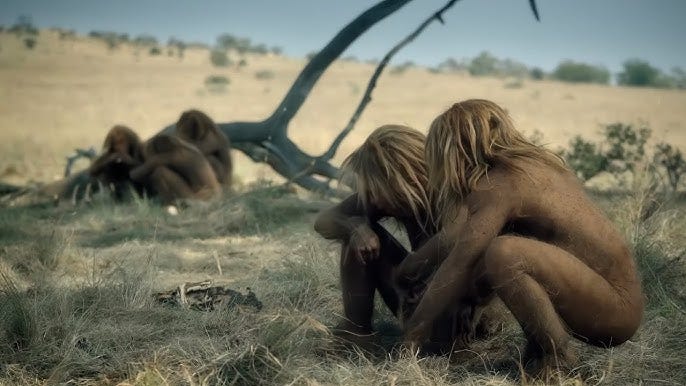
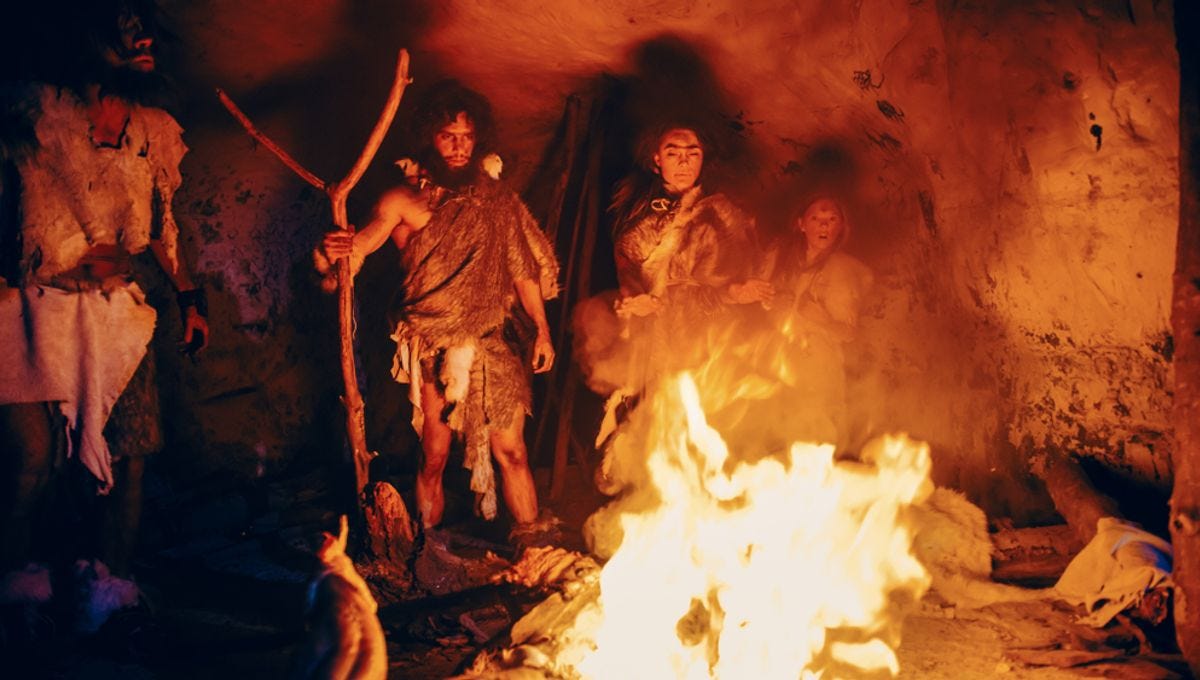

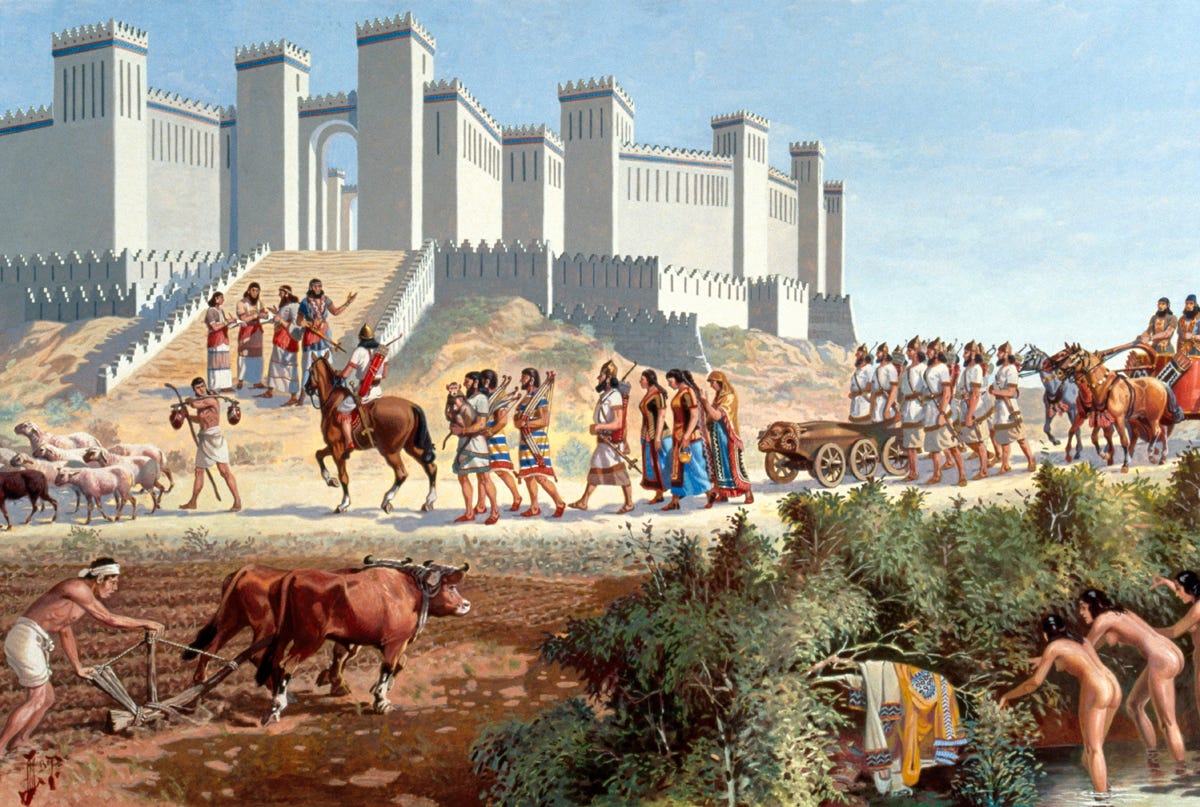

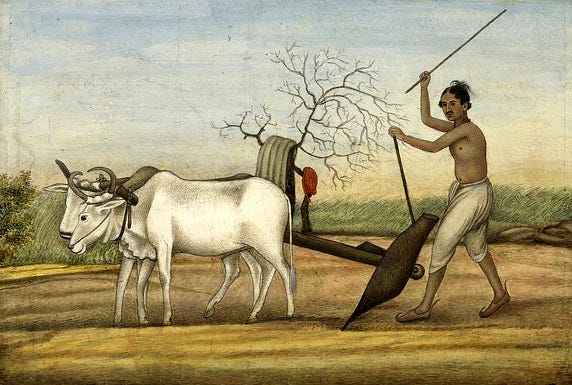
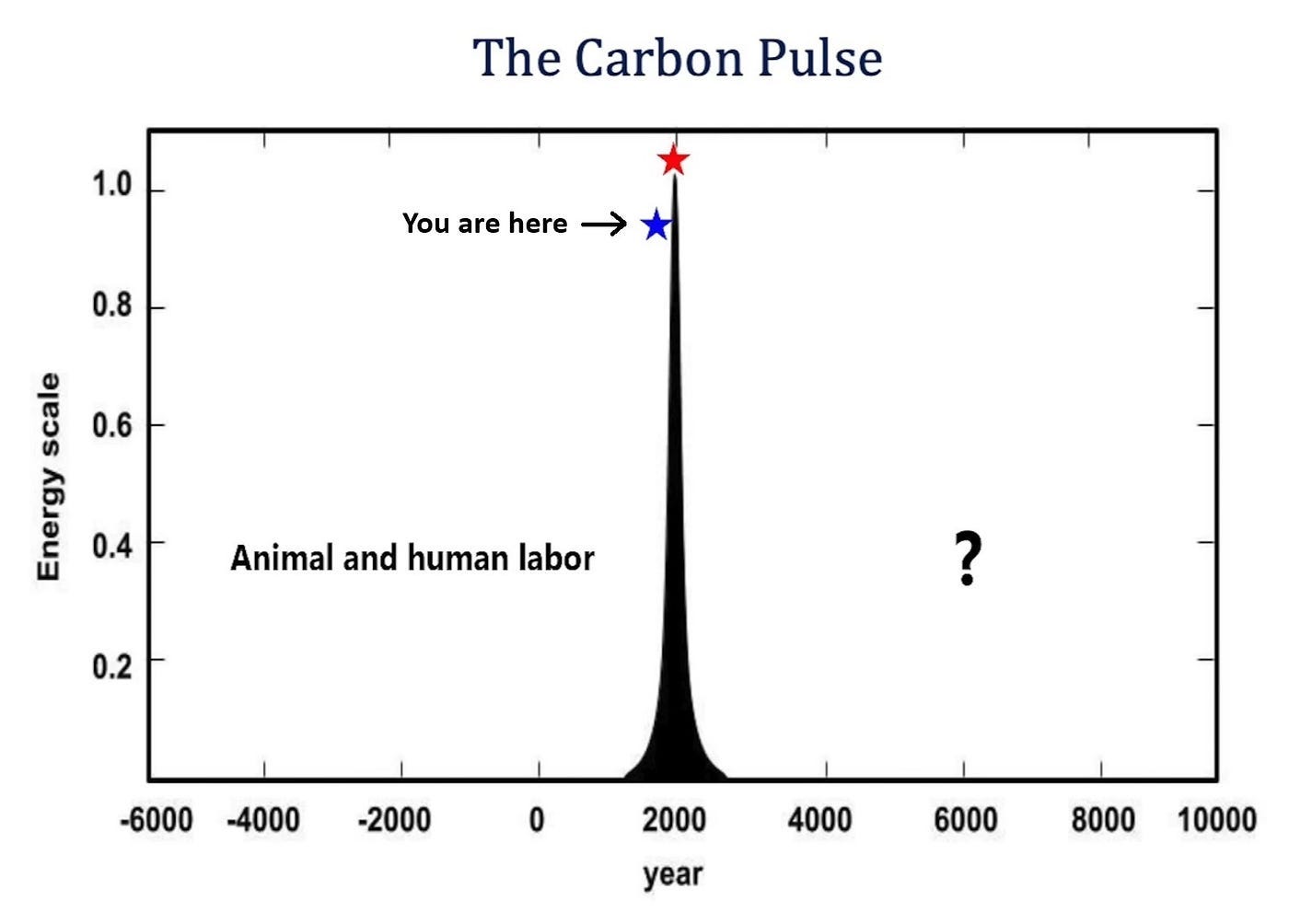
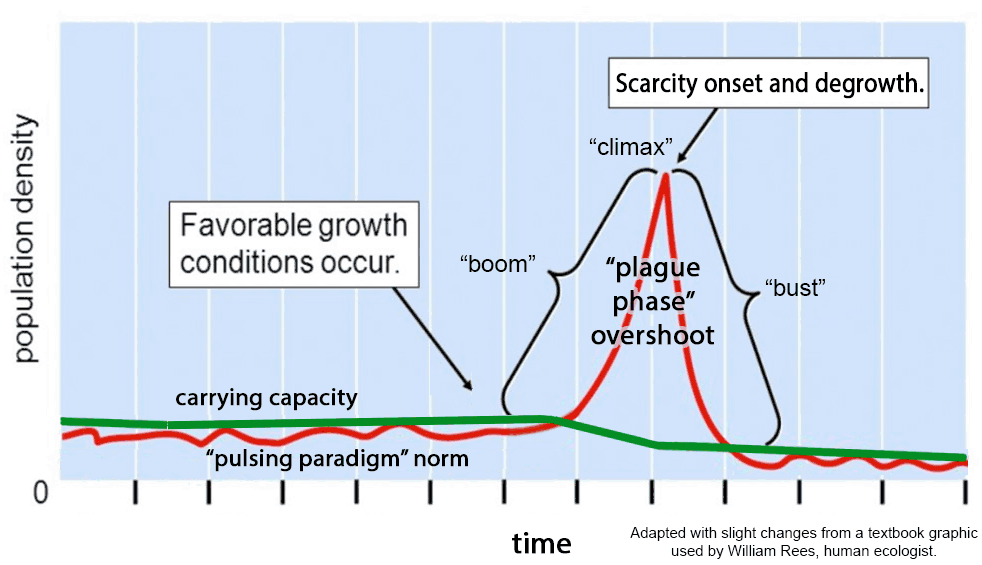


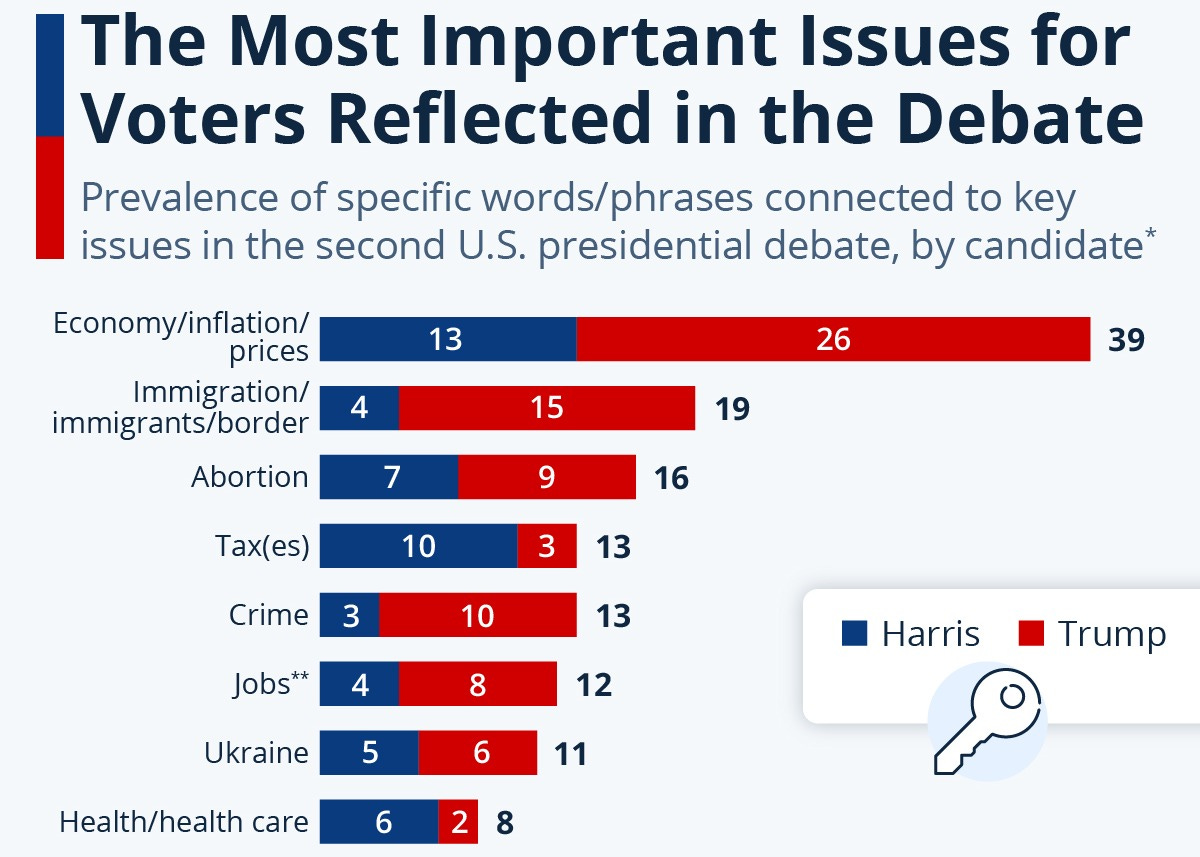
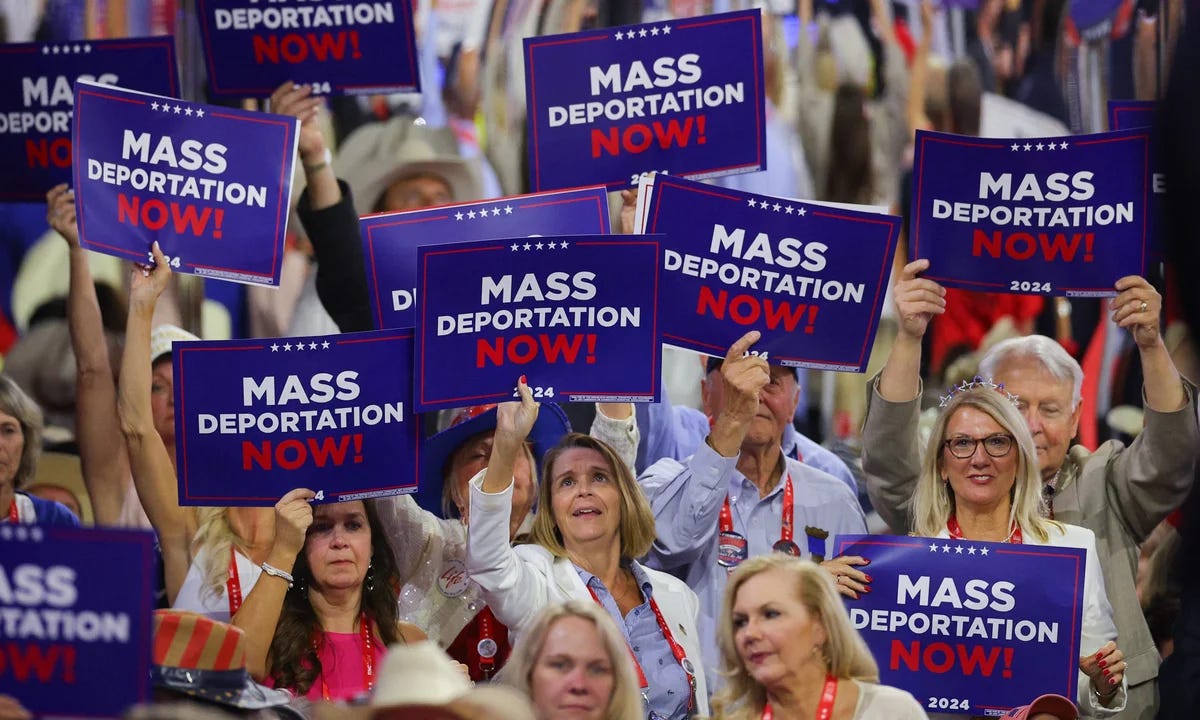


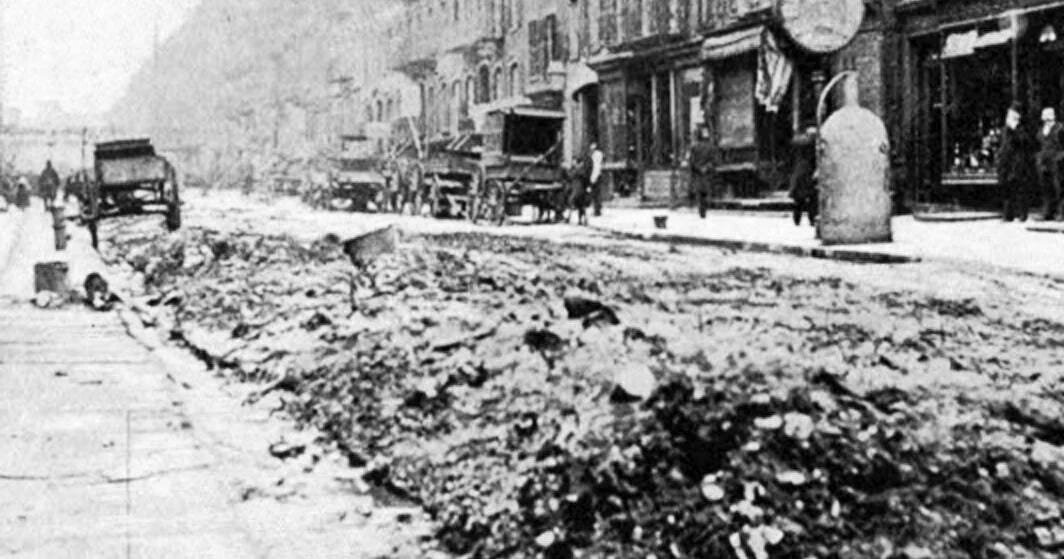


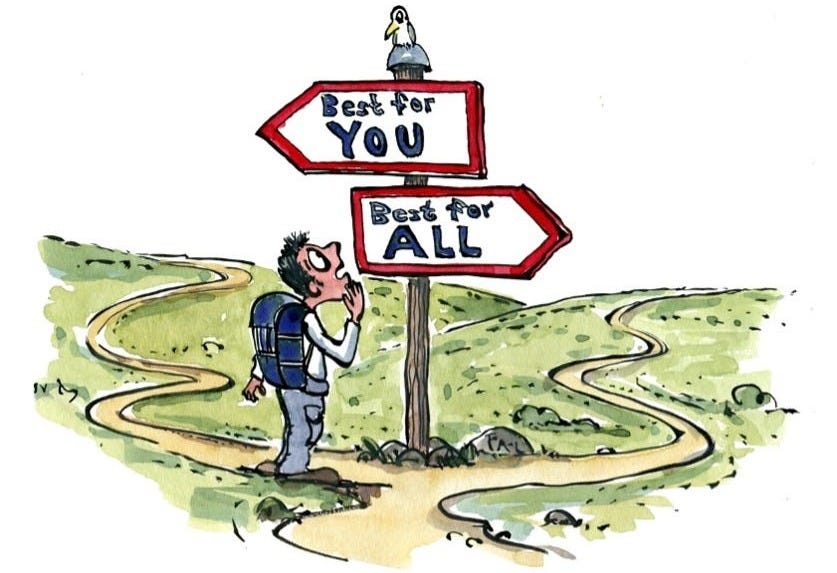
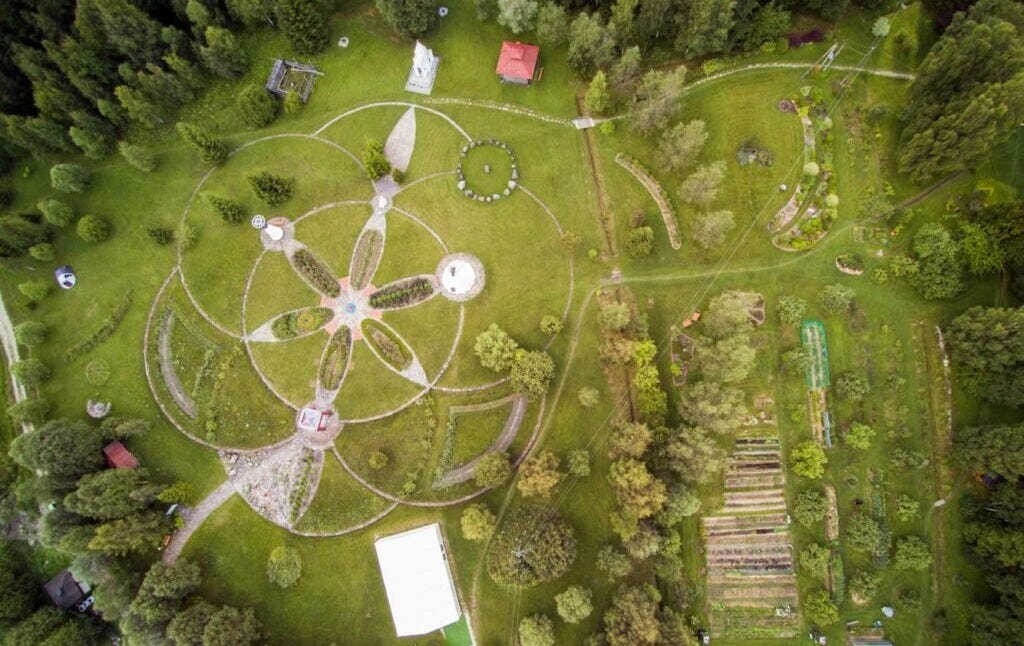
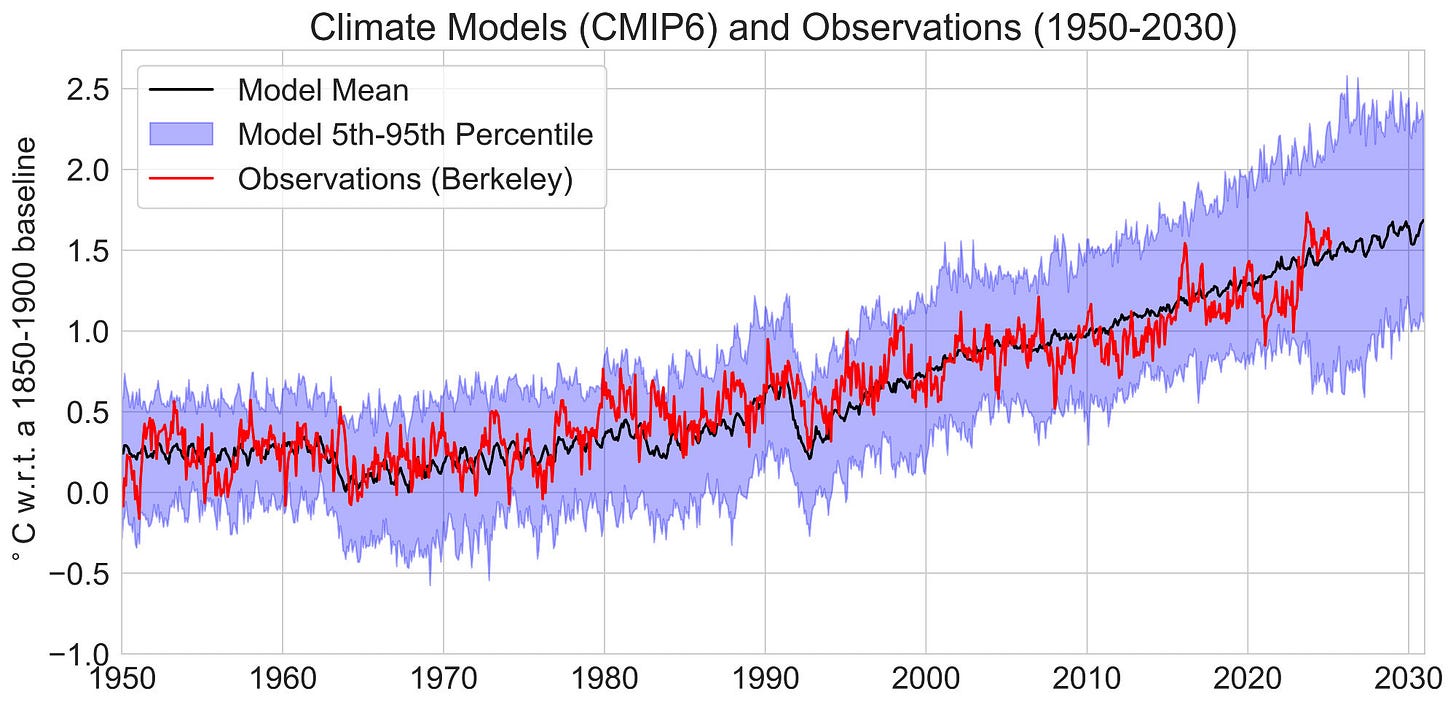



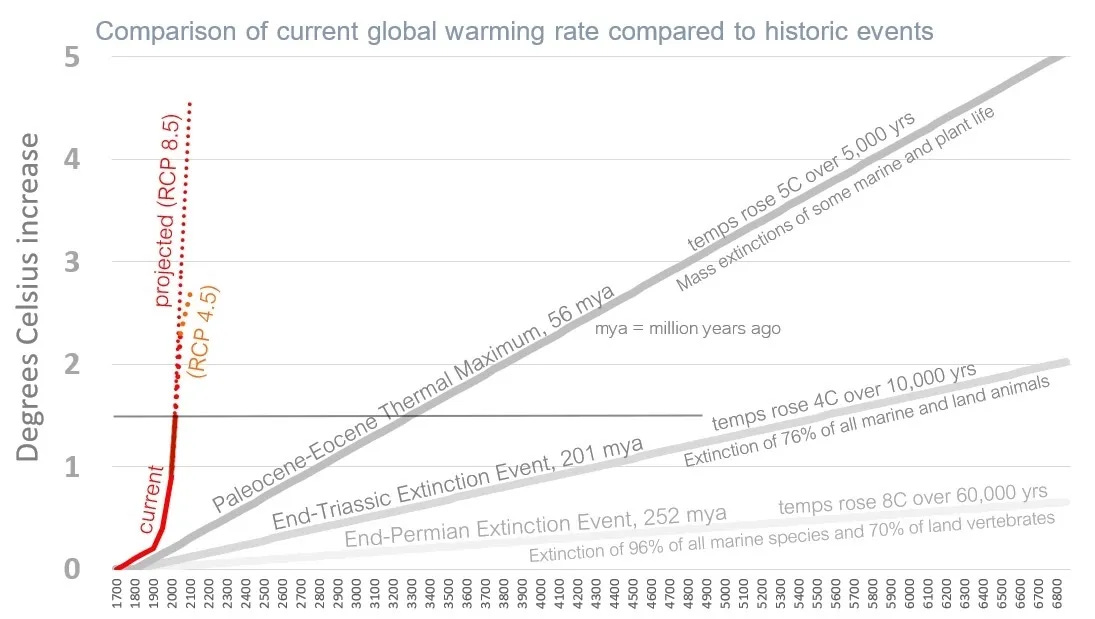
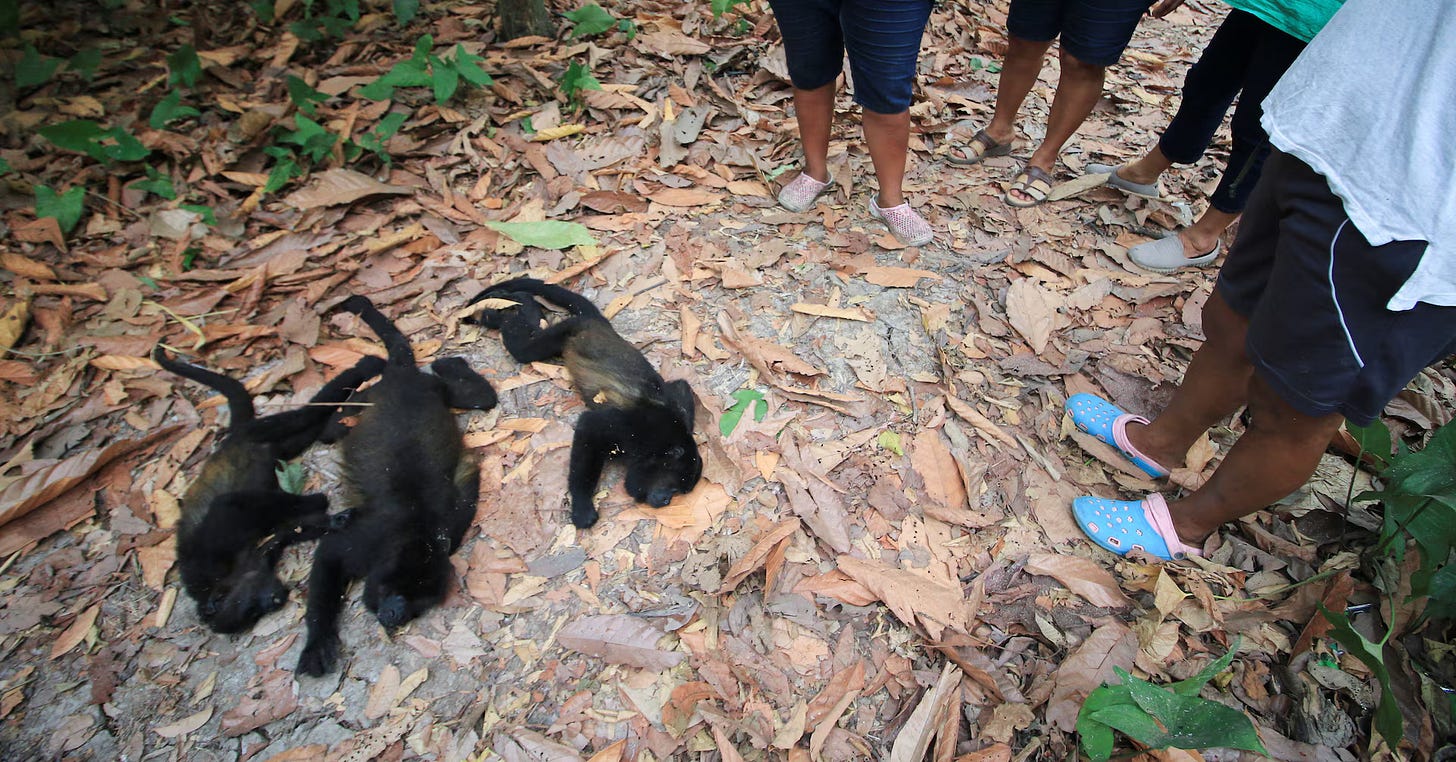
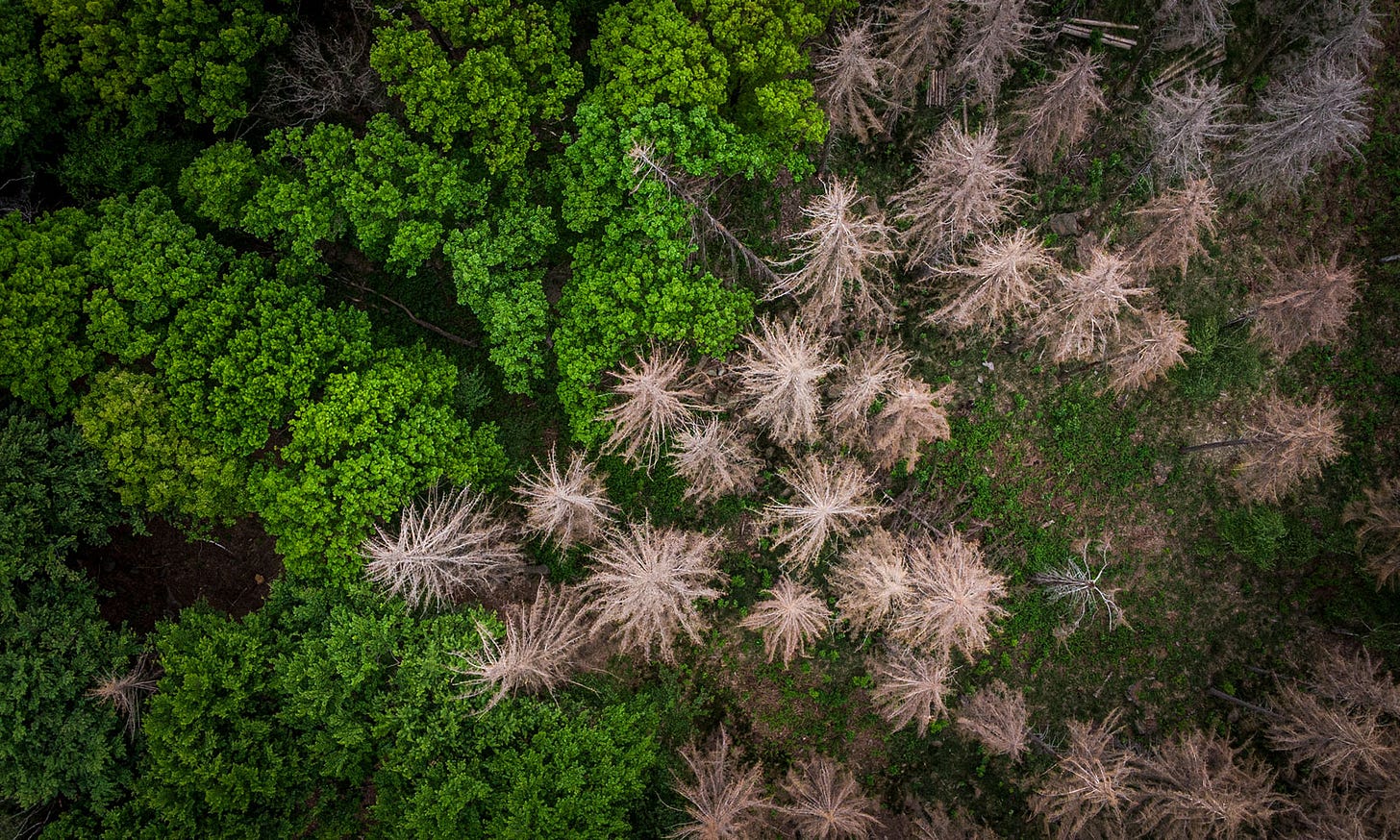


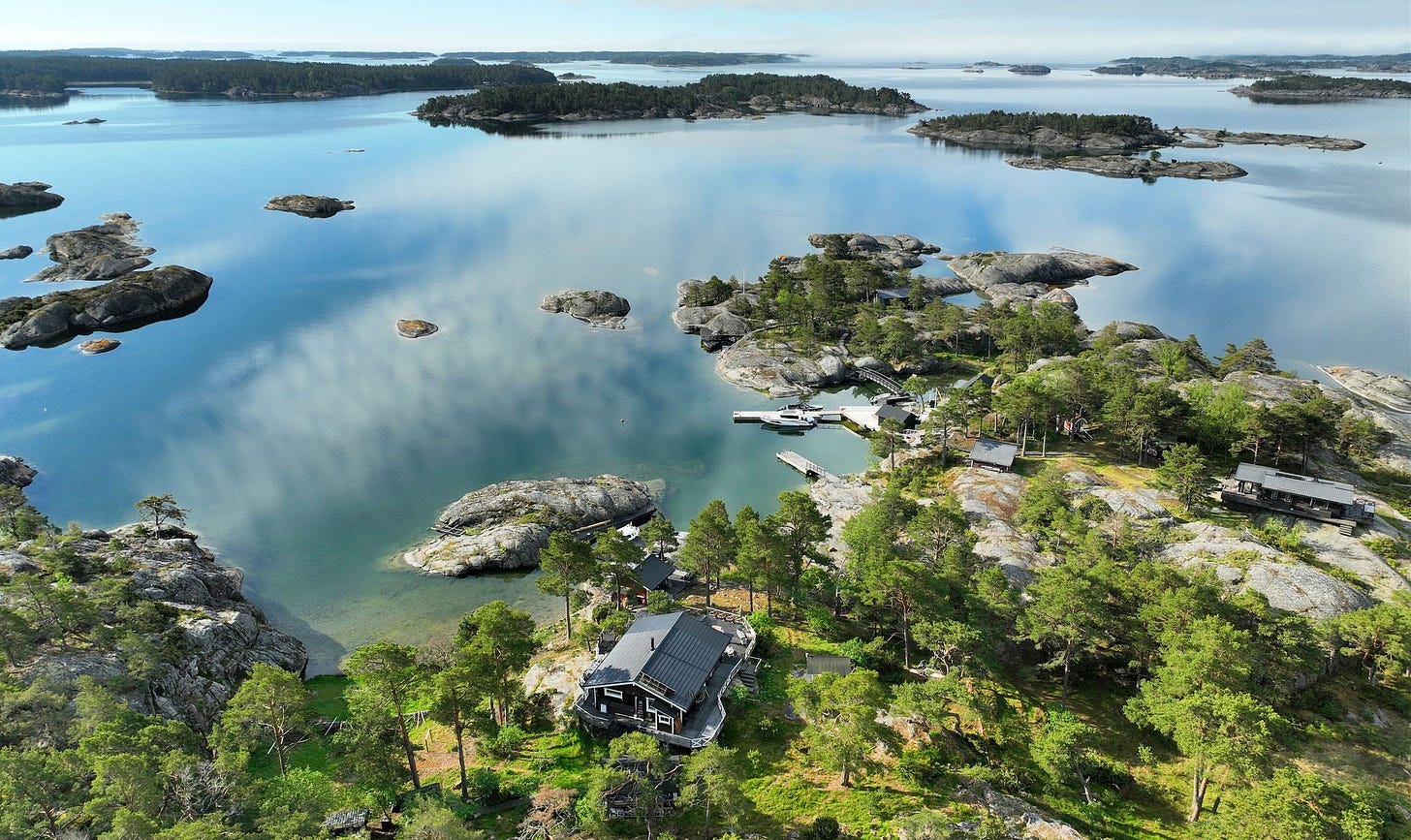
Awesome article - this is the article I’ve been meaning to write but you’ve done it already. Kudos!
The air just went out of me. Not because I haven’t understood this to some degree but because I am still in the watching and not understanding why no one else seems to be freaking out stage. This article confirms for me what my gut has known. I appreciate too that you did not sugar coat anything but instead just leading us to acceptance.